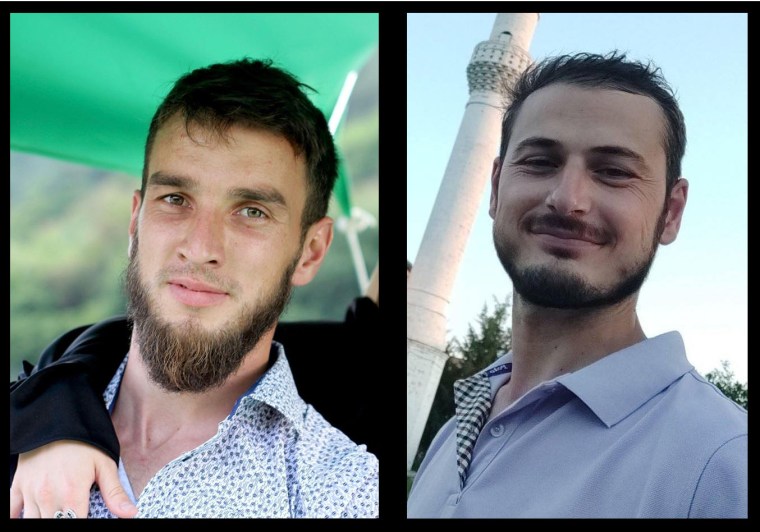New York, March 8, 2024—Russian authorities in Ukraine’s Crimea must drop all charges against journalists Rustem Osmanov and Aziz Azizov, release them immediately, and stop prosecuting the press in retaliation for their work, the Committee to Protect Journalists said Friday.
At around 4 a.m. on Tuesday, in the southern Crimea town of Bakhchysarai, officers with Russia’s FSB security agency detained the two journalists, who work for Crimean Solidarity, a support group that reports on politically-motivated cases in Crimea, and searched their homes, according to Crimean Solidarity representative Lutfiye Zudiyeva and the National Union of Journalists of Ukraine. Eight ethnic Crimean Tatar activists were also arrested during the crackdown, those sources said.
Russia annexed Crimea in 2014 and imposed its own laws on the peninsula, prior to its full-scale invasion of Ukraine in February 2022.
The same day, the Kyiv District Court of Simferopol ordered the two journalists to be detained for two months, until May 5, on charges of organizing and participating in the activities of a terrorist organization, Zudiyeva said.
“With the detention of two more Crimean Tatar journalists in Ukraine’s Crimea, Russian authorities continue to target independent voices trying to shed light on the human rights situation in the peninsula,” said Carlos Martinez de la Serna, CPJ’s program director. “Authorities must drop all charges against journalists Rustem Osmanov and Aziz Azizov, release them immediately, and stop cracking down on Crimean Tatar journalists.”
The journalists will appeal the court’s decision, and will be held in a pretrial detention center in Simferopol, Crimea’s capital, pending investigation, their lawyer Edem Semedlyayev was quoted as saying by Zudiyeva.
Since Russian authorities cracked down on the independent media in Crimea in 2015, many Crimean Tatars have been persecuted for their civic journalism, which often focuses on the rights of the predominantly Muslim indigenous ethnic group.
Osmanov and Azizov were accused of involvement with the Islamic group Hizb ut-Tahrir, local human rights organizations said in a statement. Russia has designated Hizb ut-Tahrir as a terrorist organization, and has prosecuted dozens of Crimean Tatars for allegedly membership of the group, which operates legally in Ukraine.
Osmanov was charged with organizing Hizb ut-Tahrir activities, while Azizov was charged with participating in the group, Zudiyeva told CPJ. If convicted, they could face up to 20 years in prison, under Russia’s criminal code.
During the search of Osmanov and Azizov’s homes, FSB officers seized phones, a tablet, hard drives, and their Russian and Ukrainian passports, Zudiyeva told CPJ.
Azizov has been reporting for Crimean Solidarity since 2019, livestreaming detentions and home raids on Crimean Tatars and covering trials, while Osmanov, a former journalist with the independent Crimean broadcaster ATR, has been working for Crimean Solidarity since 2016, Zudiyeva said.
When CPJ conducted its latest annual global census of imprisoned journalists on December 1, 2023, five of the 22 journalists behind bars in Russia were Crimean Tatars, all of whom had been working for Crimean Solidarity. Of the five, Remzi Bekirov is serving the longest sentence—19 years—on terrorism charges. Other Crimean Solidarity reporters, including Zudiyeva, have also been arrested in retaliation for their work in recent months.
CPJ emailed the Kyiv District Court of Simferopol for comment but did not immediately receive any reply.
Editor’s note: The photo caption has been updated to correct the spelling of Rustem Osmanov’s name, the opening sentence has been changed to clarify that the arrests took place in Ukraine’s Crimea, and the second to last paragraph has been altered to clarify details around Crimean Solidarity reporters’ arrests.
